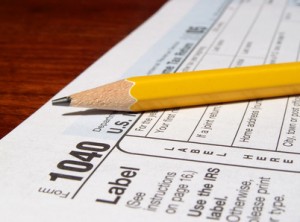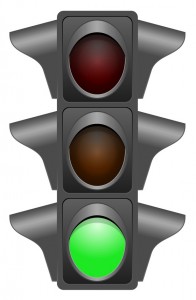 Last week, I hope, was a blessed time as you and your family celebrated Easter. You may also have celebrated that your tax forms were completed and filed!
Last week, I hope, was a blessed time as you and your family celebrated Easter. You may also have celebrated that your tax forms were completed and filed!
April 15 for many of us is a dreaded day. As the saying goes, everyone will experience death and taxes!
Since you just finished your tax filing, your mind is fresher right now in what you need for next year. And since this blog is all about helping you to become more organized, I decided to tackle this painful subject so that this time next year you will be ready!
~
The first step for a pain-free tax season, as the tax pros recommend, is to get more organized. So, take a look at the tax paperwork you just completed or Google “income tax checklist” to turn up a cheat sheet of paperwork you need to keep.
Next, get file folders and separate documents in a way that makes sense to you. As an example, you might create folders for charitable receipts, income, financial statements, and expenses such as child care and education.
Now is also the time to get rid of using a shoebox stuffed with receipts and papers. “With the shoebox there’s too much of a tendency to put stuff in there that’s not relevant, and then at the end of the year people are stressed because it’s such a mess,” says Minneapolis accountant Mark Bakko.
Many of your statements can now be found online, where you can put together tax information easily by downloading them.
And many credit cards also offer year-end statements that organize spending into helpful categories. Another way to keep track of such expenses is to tag a transaction with the label “tax” in your online bank account, or when using a budgeting site such as Mint.com.
To keep from having to pay the IRS next April, take time now to calculate the proper tax withholding from your paycheck at IRS.gov. Do this before filing your 2010 taxes away; you’ll need data from the return you just filled out.
And if you are self-employed, figure out your estimated payments now and set aside money to pay them.
Another tip from the professionals: think now how to lower your taxes. Retirement contributions to 401(k)s and other tax-deferred plans reduce your tax bill. And, make sure you take the right amount of deductions for noncash charitable contributions. Many people leave money on the table by taking too small a deduction. Two free programs that value and track your noncash charitable contributions online are: Intuit’s It’s Deductible or H&R Block’s DeductionPro.
~
The thought of giving up so much of our hard-earned salary to the government is frustrating. And, it may create in us a desire to hold on to more of our money, leaving us as very selfish, discontent people. We need to remember that God owns it all!
“Make sure that your character is free from the love of money, being content with what you have; for He Himself has said, ‘I will never leave you, nor will I ever forsake you.’” Hebrews 13:5
~
Preparing and paying taxes can be emotionally draining. It can also be a time when you may question yourself, your job, your place in life. You can also lose hope.
That’s the beauty of living a life based on God’s word and following Him. God knows we have these feelings, these trials and hardships. His word is there for us to read and re-read about His love and His promises and that He will never leave or forsake us no matter the health of the economy or the taxes we have to pay.
Read the book of Ecclesiastes. This book in the Old Testament, written by King Solomon, reveals how empty life can be apart from God. Though he had everything a person would ever want, and more money than anyone else in the world, he wasn’t content. He realized that only God can fulfill our real needs and desires.
~
April is known for something other than taxes: allergy season. For some of you, this is worse than taxes any day! Here are some tips that might help you get through it:
First, know which allergy trigger is bothering you. Common ones include outside irritants as pollen; mold, dust mites, pet dander, food, insect stings and medications.
Symptoms can be as mild as a stuffy nose or itchy eyes or as severe as throat or nasal swelling and labored breathing. For people with underlying conditions, such as asthma, exposure to some allergens can be especially serious.
You may want to undergo allergy testing to know the exact cause of your symptoms especially for those of you who have experienced allergy symptoms for more than three months.
Ways you can get relief: Allergy shots, prescription and over-the-counter medications; drops which are under the tongue immunotherapy; adding high efficiency air purifiers and furnace filters; protectors to encase your pillows and mattresses; making sure your home is cleaned regularly; using the ‘re-circulating air’ option on your car’s air conditioning which prevents outside air from entering your vehicle; staying inside on windy and high pollen count days; getting rid of indoor plants (mold can form on wet dirt); doing away with carpet and adding hardwood floors or other hard surfaces for those with dust allergies; using a saline nose flush.




